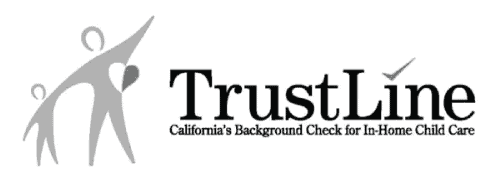Your baby is here! Now what should you do? There is a lot of love and excitement as you look at your sweet baby’s face, but there is so much to learn about how to care for them, too. Once you bring your baby home, are you wondering what to expect during your baby’s first few weeks? Keep reading to find out more about your first days home with a newborn. This will help ease the transition into parenthood.
Newborn First Weeks: The Basics
During the 1st week with a newborn, your baby will mainly sleep, eat, and go potty. Whether the baby is formula fed or breastfed, you will be feeding your baby every couple of hours. If you are having trouble breastfeeding, you may want to consider working with a lactation consultant to ensure your baby is getting enough. Even the biggest eaters can lose up to a tenth of their birth weight during the first five days on earth. They should gain that weight back by the tenth day. If they don’t, talk to your doctor about tips on ensuring they get the nutrients they need.
With lots of eating comes lots of dirty diapers, so be sure to keep your little one clean and dry. This keeps the baby comfortable and can help reduce the chance of diaper rash from happening.
Your baby will also cry often. This is how newborns communicate. Cries usually indicate that they are hungry, want to be held, are tired, or need a diaper change. Your baby’s first week will mean you will need to learn which of your baby’s cries mean which and how you need to respond to them.
Your newborn will also make different sounds and movements. Most babies love to be swaddled tightly in a blanket and they often curl up like they were in the womb. Sometimes, you’ll see your baby throw their arms and legs out as if they are startled. This is a reflex and it’s normal.
Your baby will also want and need you to soothe them with sound and touch. Skin to skin contact with both parents helps relax them and helps you build a strong, long-lasting bond. So, be sure to make time for that throughout the day – whether it’s during feeding times, nap times, or other.
Newborns also sleep for 16 or more hours a day! In those first few weeks, they may take several long naps per day. This is a great time for you to take a nap and recoup, too. The old saying ‘sleep when baby sleeps’ really will help give you the extra boost of energy you need to keep going strong. Remember, your baby should be eating every 3 hours or so and it’s okay to wake them up to feed if needed.
When to Call the Pediatrician
It’s normal to have a lot of questions after bringing your baby home. Most of the time, you’ll be able to discuss concerns or questions at your first pediatric visit. However, listen to your instincts if you feel like something is off with your baby. And, if you notice any of these things in your newborn, don’t hesitate to call your doctor’s office:
- Signs of jaundice: the baby’s skin or eyes are yellowish, or they seem listless or difficult to awaken
- Frequent coughing or gagging while eating or disinterest in eating
- Excessive crying
- Hardness in the baby’s abdomen, especially if they haven’t pooped in 24 hours or more
- Fever or unusually fast breathing
- Remember, your doctor is there to help you be successful as a new parent and ensure your baby is healthy and supported.
Parental Support
Last, don’t forget to take care of yourself during this time. Your heart is full, but your body might feel drained from the strain of long days and nights or lack of sleep. Caring for a new baby is exhausting at times, so be sure to ask for help – and accept it – from friends or family you trust. Maybe it’s hiring a night nanny so you and your partner can get solid sleep, or you have a family member watch the baby for a couple of hours during the day. Or ask a friend to start a sign-up list for meals, so you don’t have to worry about cooking for a little while. Hiring a housekeeper can also be incredibly helpful, so your home can stay clean and organized while you learn more about what it means to be a parent.
Your baby’s first week and beyond might feel long, but they truly go by quickly. Before you know it, your baby will be smiling back at you, sleeping through the night, and saying their first words. Enjoy the moments!




